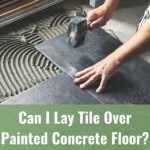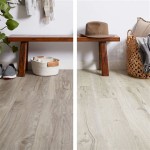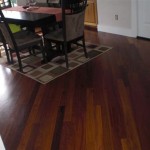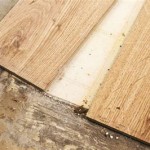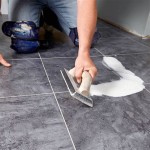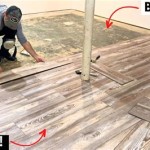Is Vinyl Plank Flooring Safe For Stairs In Georgian Homes?
Vinyl plank flooring has become a popular choice for homeowners due to its durability, water resistance, and aesthetic appeal. However, when considering flooring options for stairs, particularly in Georgian-style homes, safety concerns arise. This article examines the suitability of vinyl plank flooring for stairs, focusing on the specific challenges and considerations pertinent to Georgian architecture.
Georgian homes, characterized by their symmetrical façades, formal layouts, and often steep staircases, present unique challenges when selecting flooring. Original staircases may be constructed from hardwoods like oak or pine and feature intricate details. Modern renovations often seek to maintain the architectural integrity while incorporating contemporary materials for improved functionality and maintenance. Vinyl plank flooring, offered in various styles and thicknesses, can potentially meet these needs, but its safety and performance on stairs must be carefully evaluated.
Slip Resistance and Stair Safety
The primary safety concern with any stair flooring is slip resistance. Stairs, by their very nature, pose a fall risk, and the flooring material plays a crucial role in mitigating this risk. Vinyl plank flooring typically has a smooth surface, which can become slippery, especially when wet or when wearing socks. The slip resistance of vinyl plank flooring is generally measured using a Dynamic Coefficient of Friction (DCOF) rating. A higher DCOF indicates better slip resistance. It is imperative to select vinyl plank flooring with a DCOF rating that meets or exceeds industry standards for stair safety. The Americans with Disabilities Act (ADA) provides guidelines for accessible routes, including stairs, which can serve as a benchmark for slip resistance.
In the context of Georgian homes, the original stair treads may have developed a patina or texture over time, providing a natural level of slip resistance. Replacing these treads with smooth vinyl plank without addressing slip resistance could inadvertently increase the risk of falls. Therefore, careful consideration must be given to the surface texture and DCOF rating of the vinyl plank flooring chosen for stairs in Georgian homes.
Furthermore, the use of stair treads or nosings specifically designed to enhance traction is strongly recommended. These treads can be made from various materials, including rubber, carpet, or textured vinyl, and are applied to the edge of each stair to provide a secure foothold. The addition of stair treads not only improves safety but can also protect the vinyl plank flooring from wear and tear, extending its lifespan.
Installation Techniques and Structural Integrity
Proper installation of vinyl plank flooring on stairs is critical for both safety and longevity. Unlike flooring on a flat surface, stairs require meticulous cutting and fitting to ensure a secure and even surface. Any gaps, loose edges, or uneven surfaces can create tripping hazards. The process of installing vinyl plank flooring on stairs involves several steps, including preparing the subfloor, precisely measuring and cutting the planks, and securely adhering them to the stair treads and risers.
The subfloor, typically made of wood or concrete, must be clean, level, and structurally sound. Any imperfections in the subfloor can telegraph through the vinyl plank flooring, creating an uneven surface. In Georgian homes, the original stair structure may have settled or warped over time, requiring significant preparation before installing new flooring. This may involve reinforcing the stair treads, leveling the surface with shims or self-leveling compounds, and ensuring that the subfloor is securely fastened to the underlying structure.
The method of adhering the vinyl plank flooring to the stairs is equally important. While some vinyl plank flooring features a click-lock system for floating installations, this is generally not recommended for stairs. A full adhesive bond is typically required to prevent movement and ensure a secure installation. The adhesive must be compatible with both the vinyl plank flooring and the subfloor and should be applied according to the manufacturer's instructions. Professional installation is highly recommended to ensure that the vinyl plank flooring is properly installed and that all safety precautions are taken.
Moreover, the choice of stair nosings is crucial for both aesthetic and structural reasons. Stair nosings are the rounded or angled edges that extend over the edge of each stair tread, providing a finished look and protecting the edge of the flooring from damage. The nosing should be securely attached to the stair tread and should be flush with the surface of the vinyl plank flooring to prevent tripping hazards. In Georgian homes, the stair nosings may need to be custom-made to match the existing architectural details and to ensure a seamless integration with the overall design. The selection of appropriate stair nosings is a critical component of a safe and aesthetically pleasing installation of vinyl plank flooring on stairs.
Material Properties and Durability Under Stress
The durability and resilience of vinyl plank flooring under the specific stresses of stair usage is a significant concern. Stairs experience high foot traffic and are subjected to considerable weight and impact, particularly on the treads. The thickness and construction of the vinyl plank flooring play a crucial role in its ability to withstand these stresses. Thicker planks generally offer greater durability and resistance to wear and tear. It is advisable to select vinyl plank flooring with a wear layer of at least 20 mils (0.5 mm) for stair applications, especially in high-traffic areas.
The composition of the vinyl plank flooring also affects its performance on stairs. Some vinyl plank flooring is made from virgin vinyl, while others contain recycled content. Virgin vinyl is generally considered to be more durable and resistant to scratches and dents. However, high-quality vinyl plank flooring made from recycled content can also perform well, provided it meets the necessary standards for durability and wear resistance. The material should also demonstrate resistance to compression, as constant foot traffic can compress the material over time, leading to uneven surfaces.
In Georgian homes, where the original staircases may have been constructed from softer woods like pine, the vinyl plank flooring must be able to withstand the potential for flex and movement in the underlying structure. If the stairs are not perfectly rigid, the vinyl plank flooring may be subject to flexing, which can lead to cracking or delamination. In such cases, it may be necessary to reinforce the stair structure or to select a more flexible vinyl plank flooring that can better accommodate movement. The compatibility of the vinyl plank flooring with the existing stair structure is a critical consideration for ensuring long-term durability and safety.
Furthermore, the resistance of the vinyl plank flooring to moisture is an important factor, particularly in areas with high humidity or where spills are likely to occur. While vinyl plank flooring is generally water-resistant, it is not entirely waterproof. Prolonged exposure to moisture can lead to delamination or warping, which can compromise the safety and integrity of the installation. Proper sealing and maintenance are essential to prevent moisture damage and to extend the lifespan of the vinyl plank flooring on stairs. Regular cleaning and the prompt cleanup of spills are crucial for maintaining a safe and attractive staircase.
Ultimately, the suitability of vinyl plank flooring for stairs in Georgian homes depends on a careful assessment of the specific characteristics of the home, the properties of the flooring material, and the quality of the installation. By addressing the key concerns of slip resistance, structural integrity, and material durability, homeowners can make an informed decision and create a safe and aesthetically pleasing staircase that complements the architectural style of their Georgian home.

Kubik Residence Vinyl Planks Lvp Rustic Staircase Calgary By Cochrane Floors More Houzz

Park Avenue Chevron Georgian Oak Brushed Oiled Solid Wood Flooring Super

Lvt On Stairs Flooring Hallway King

Malibu Wide Plank French Oak Valencia 20 Mil 9 1 In X 60 Lock Waterproof Luxury Vinyl Flooring 30 5 Sq Ft Case

Lvt Luxury Vinyl Tiles Supply And Fit London Cavendish Devere

Home Decorators Collection Leo Hill Oak 12 Mil X 7 In W 48 L Waterproof Lock Luxury Vinyl Plank Flooring 23 8 Sq Ft Case Vtrhdleohil7x48 The

Georgian House Plans Monster

Kubik Residence Vinyl Planks Lvp Rustic Staircase Calgary By Cochrane Floors More Houzz

Laminate Flooring On Stairs Transform Your With Quality Yaletown Floor

Which Tile For The Entry Of Our New House Renovating My
See Also
